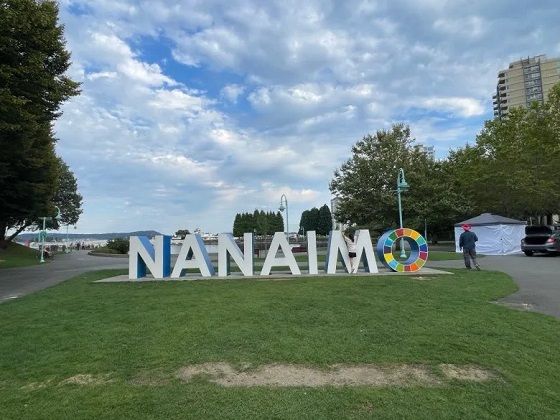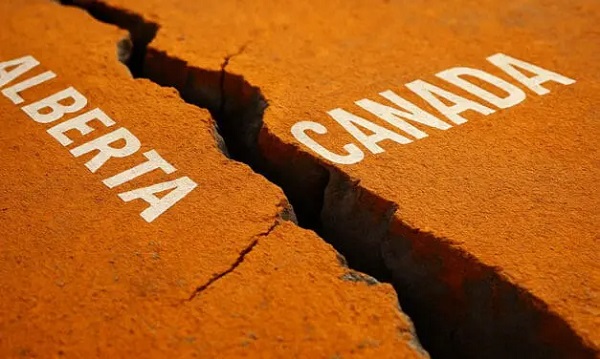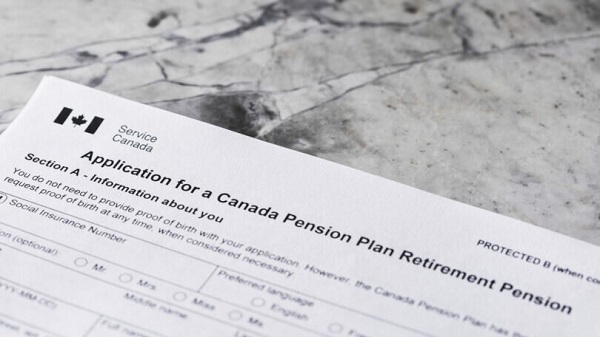Energy
Many Canadians—and many Albertans—live in energy poverty

From the Fraser Institute
By Tegan Hill and Elmira Aliakbari
Amid an ongoing trade war with the United States, which will increase prices for Canadian and American consumers alike, affordable energy is crucial to fuel our daily lives and power the economy. Unfortunately, energy prices have been rising for years, straining household budgets across Canada including in Alberta.
For perspective, from 2002 to 2023 (the latest year of available data) the price of energy (electricity, gasoline, etc.) grew by 105.5 per cent compared to 53.5 per cent for non-energy goods and services. This reflects a significantly higher increase in energy prices compared to other goods.
Why have energy prices increased?
While there are many factors, bad government policy has added fuel to the fire. The list includes the federal carbon tax, which remains in place for large industrial emitters. And Ottawa’s “Clean Electricity Regulations,” which mandate that by 2050, 100 per cent of Canada’s electricity must come from clean energy sources as wind, solar, hydro, etc. To meet this goal, Canada would need to build a massive amount of new infrastructure and technology, potentially driving electricity costs even higher.
Of course, Canadians pay the price for bad policy. Due in part to rising energy prices, in 2021 (the latest year of available data), 11.0 per cent of Canadians lived in “energy poverty”—that is, at least 10 per cent of their household total annual spending paid for energy-related goods such as electricity, natural gas, gasoline and other heating fuels. In Alberta, the number was 10.0 per cent. All told, that’s a lot people in energy poverty.
And energy poverty disproportionally affects lower-income households. For instance, in 2021 across Canada, 22.1 per cent of households earning $31,200 or less, and 20.7 per cent earning between $31,200.01 and $55,000, were in a state of energy poverty compared to only 1.6 per cent of households earning more than $124,000.
When the next federal government—whoever that may be—works with the provinces to develop energy policy, it should understand the significant level of energy poverty in Canada including Alberta, particularly among low-income households. Increasing energy prices further would likely increase the burden on families already experiencing energy poverty and those families at risk of falling into it.
Business
The Liberals Finally Show Up to Work in 2025

From the National Citizens Coalition
Canadians Demand Action, Not More Empty Promises
The National Citizens Coalition (NCC) today calls out the Liberal government for their belated return to the House of Commons in 2025, after months of dodging accountability while Canadians grapple with skyrocketing costs, unaffordable housing, crime and chaos, and the fallout of a decade of failed Liberal policies.
While the Liberals dust off their seats, millions of Canadians have been struggling to pay for groceries, keep a roof over their heads, or envision a future where hard work still pays off. The NCC demands the government stop hiding behind empty rhetoric and deliver meaningful, common-sense actions to address the crises they’ve exacerbated.
“After years of empty gestures, empty rhetoric, and empty promises, showing up to Parliament in 2025 isn’t an achievement – it’s the bare minimum. Canadians are drowning in high taxes, inflation, and a housing crisis, and they deserve real solutions, not more speeches,” says NCC Director Alexander Brown.
The NCC calls on the Liberal government to immediately prioritize:
Immediate tax relief to put money back in the pockets of hardworking Canadians, including axing the HIDDEN CARBON TAX on our Great Canadian businesses.
Concrete steps to slash immigration back to responsible, sustainable norms; including a crackdown on fraudulent ‘diploma mills,’ and the abolishment of the ‘Temporary Foreign Worker’ program, to protect Canadian jobs, and the jobs of our youth.
Meaningful, immediate efforts to increase housing supply, by slashing red tape and bureaucratic roadblocks that drive up development costs.
An end to wasteful spending on pet projects and corporate handouts that do nothing for struggling families.
Steps toward meaningful criminal justice reform; including an end to Liberal catch-and-release bail for repeat violent offenders.
A plan to restore economic opportunity, so young Canadians can afford homes and build a future without fleeing the country.
And it’s time to Kill Bill C-69 — and Build Pipelines.
Working Canadians have heard enough platitudes – it’s time for results. The government must act decisively to fix the mess they’ve created or step aside for those who will. With just a few short weeks before the Liberals abscond for another vacation, IMMEDIATE ACTION is required to match the urgency of the moment, and to atone for the insult of the Liberals’ cynical, dishonest, “elbows up” campaign that left millions of young, working-age Canadians without hope for the future.
About the National Citizens Coalition:
Founded in 1967, the National Citizens Coalition is a non-profit organization dedicated to advocating for lower taxes, less government waste, and greater individual freedom. We stand for common-sense policies that once again put Canadians first.
Economy
If the Liberal government has a plan for the future of conventional energy, now would be a good time to tell us what it is.

From Energy Now
By Jim Warren
During the Cold War, Western journalists and political analysts were typically unable to penetrate the secrecy surrounding the machinations of upper level Soviet politics. They would struggle to discern who the top contenders were in the contest to replace the current party leader and what a new leader might mean for geopolitics.
The lack of trustworthy official information prompted Kremlin watchers to adopt some rather desperate and sometimes absurd methods for divining the twists and turns of internal Communist Party intrigues.
For instance, they would look at photos of the party leadership on the reviewing stand for the annual May Day military parade. They would identify how close or far each member of the official party on the dais was sitting from the party leader. The proximity rankings were then compared with where people were positioned in relation to the leader at last year’s parade. Those who stood or sat closer to the leader than they did the previous year were presumed to be on their way up. Those who stood further away might be on their way to Siberia.
After one month in office it looks like the Carney government will require observers to go to similarly ridiculous lengths to figure out what cabinet ministers really mean when making public statements. Last week, a column by Calgary Sun’s Rick Bell discussed Danielle Smith’s demand that the Liberals quit talking in riddles. Bell suggested the Liberals would rather “stick handle” their way through questions about their policy positions than clearly indicate what those positions are.
Supporters of the oil, gas and pipeline sectors in the West remain uncertain and unconvinced when it comes to the Liberal government’s commitment to getting new pipelines built. This week’s Speech from the Throne certainly didn’t clarify the government’s plans for conventional energy production and exports.
The prime minister’s flip flopping has been particularly unhelpful. He has distanced himself from the comments he made at Kelowna early in the election campaign. While speaking there, Carney temporarily impressed supporters of new export pipelines by indicating he would use the emergency powers of the federal government to ensure oil pipelines are built to connect the prairies with the East and West coasts. Several days later he indicated he wouldn’t use those powers to override the objections of Quebec.
Currently, the prime minister says he is taking a wait and see approach. Last week he said a new pipeline extending from the prairies to a Canadian coastline is one of many possibilities depending on what sort of consensus develops around energy policy. When fumbling to explain his consensus approach, he produced the sort of word salad Danielle Smith could justifiably refer to as “talking in riddles.”
During the new government’s first Question Period on May 28, Andrew Scheer asked Carney what he intended to do about Bill C-69, the infamous No More Pipelines Bill. True to form Carney avoided providing a clear answer to the question. He responded with irrelevant canned talking points that failed to mention either the noxious Bill or increasing oil export opportunities.
Last week, Tim Hodgson, Canada’s new Energy Minister told people at a Calgary Chamber of Commerce event some of the of things they hoped to hear. According to a National Post report on the event Hodgson said he “promised to deliver new infrastructure to get Canadian energy to the coast and ultimately ‘to trusted allies’ outside the U.S.”
Hodgson also had comforting words for those concerned that Canada’s cumbersome project approval process could stymie new pipeline approval and construction. He said “Canada will no longer be defined by delay. We will be defined by delivery.”
Talk is cheap. It is difficult to imagine how costly pipeline construction delays and cancellations can be prevented without first getting rid of Bill C-69. If Hodgson was truly being sincere you’d think he would have announced plans are in the works to overturn C-69 or to at least make serious revisions to it. Since he never went that far in his remarks, the presentation fell far short of announcing that a credible plan is currently being considered.
The week prior to Hodgson’s Calgary speech, his cabinet colleague Steven Guilbeault announced that Canada did not need any new pipelines because the Trans Mountain was not operating at full capacity. Guilbeault also said that by the time a new pipeline could be built the global demand for oil and gas will have declined so much it wouldn’t be needed. Unfortunately, if a new pipeline project isn’t approved and completed within the next 15 years, Gulibeault’s second point will be on its way to becoming a self-fulfilled Liberal prophecy.
So who really speaks for the government on conventional energy policy? We’ve been presented with three different versions from three of the people who sit around the cabinet table, one of whom is supposed to be the boss. Apparently it is no longer the case that ministers are duty bound to refrain from criticizing or deviating from government policy. Yet, as far as we know, nobody has been reprimanded for announcing an incorrect version of the Liberals’ conventional energy policy.
We have been left to guess at the answers to critical questions. Has the government initiated a plan for making policy changes that deal with the concerns of the conventional energy sector and the governments of Alberta and Saskatchewan? If so, could someone please tell us what it is?
Transparency and clarity on the conventional energy file seem especially important at a time when Alberta is posed to hold a referendum on separation. Perhaps the Liberals don’t appreciate how much the lack of a coherent position in favour of building one or more new pipelines threatens national unity. Maybe their standard election winning formula of “screw the West, we’ll take the rest,” reflects what they have adopted as their long-term approach to the legitimate demands of alienated Westerners.
Barring the appearance of a clearly articulated official policy statement we might need to adopt a Canadian version of Kremlinology. That’s about the only means we would have to determine who, if anyone, is running the government—more specifically its conventional energy policy. Knowing which ministers speak for official government policy and which don’t could be useful.
We might need to ask questions like the following:
- Which cabinet ministers get to sit at the cool kids’ table at the parliamentary cafeteria?
- Which minister’s favourite companies and environmental groups have received the biggest grants and contracts since Carney became prime minister?
- Which minister enjoys the most taxpayer funded flights and luxury hotel room stays to attend international gabfests like The World Economic Forum, in Davos, Switzerland or this year’s COP 30 conference in Brazil, etc.?
- According to Parliament Hill gossip, who is most likely bound for Siberia—Steven Guilbeault or Tim Hodgson? And, when, if ever, will Jonathan Wilkinson be released from the backbench gulag and allowed back into cabinet? And why was he sent there in the first place—not green enough, or too green?
-

 Addictions20 hours ago
Addictions20 hours agoMan jailed for trafficking diverted safer supply drugs, sparking fresh debate over B.C. drug policies
-

 Alberta22 hours ago
Alberta22 hours agoHow Trump and Alberta might just save Canada
-

 Bruce Dowbiggin17 hours ago
Bruce Dowbiggin17 hours agoCaitlin Clark Has Been The Real Deal. So Her WNBA Rivals Hate Her
-

 Business21 hours ago
Business21 hours agoThe Liberals Finally Show Up to Work in 2025
-

 Alberta20 hours ago
Alberta20 hours agoJann Arden’s Rant Will Only Fuel Alberta’s Separation Fire
-

 Banks18 hours ago
Banks18 hours agoCanada Pension Plan becomes latest institution to drop carbon ‘net zero’ target
-

 Daily Caller19 hours ago
Daily Caller19 hours agoThere’s A Catch To California’s Rosy Population Stats
-

 espionage2 days ago
espionage2 days agoTrudeau Government Unlawfully Halted CSIS Foreign Operation, Endangering Officers and Damaging Canada’s Standing With Allies, Review Finds





